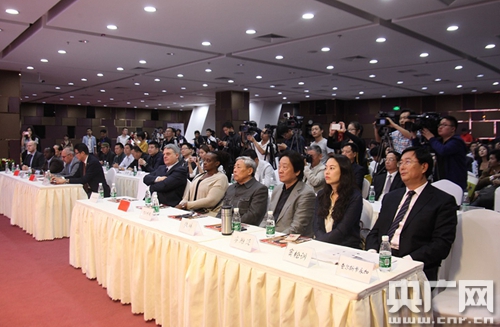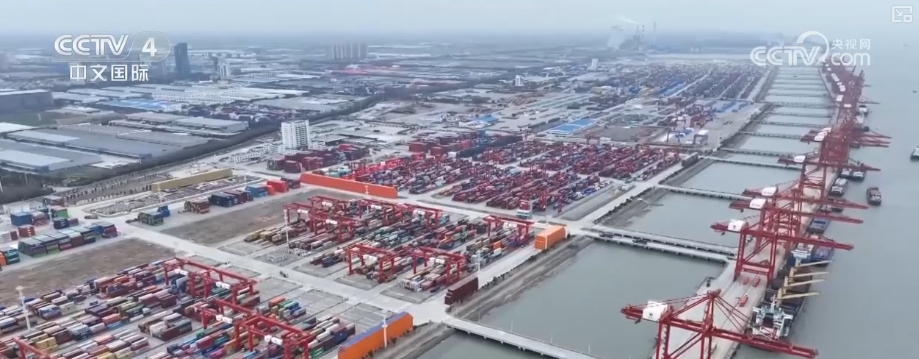The US Foreign Policy Said That China Is Not The "next United States", But Has Washington Listened?
The US Foreign Policy Said That China Is Not The "next United States", But Has Washington Listened?
A view has recently been popular in the US strategic community that China is trying to replace the United States as a global hegemon and expand its territory abroad. But through in-depth analysis, Foreign Policy magazine found that this view may completely misunderstand China
A view has recently been popular in the US strategic community that China is trying to replace the United States as a global hegemon and expand its territory abroad. But through in-depth analysis, Foreign Policy magazine found that this view may completely misunderstand China's true intentions.
In fact, China's foreign policy goals are quite clear and restrained. Judging from the official documents and historical actions, China mainly focuses on three core demands: safeguarding the development achievements of reform and opening up, achieving complete national unity, and safeguarding the people's right to development and quality of life. These goals are all focused on domestic development rather than pursuing global hegemony.
Washington political circles have recently formed a cross-party consensus, viewing China as the number one strategic competitor. This perception directly affects a series of tough policies adopted by the United States against China, including military deterrence, technological decoupling and strategic encirclement. But the latest research shows that this judgment may be fundamentally biased.
In-depth analysis shows that China is more in line with the current status of limited goals. Since 2011, many white papers released by China have repeatedly emphasized: do not seek hegemony, do not interfere in other people's internal affairs, and do not export development models to the outside world. The Chinese leaders have never proposed global leadership, but have repeatedly reiterated their opposition to any form of hegemonic diplomacy. Even when discussing changes in the international balance of power, China has made it clear that it does not want to change the United States, nor does it intend to replace the United States.
From a historical perspective, China's sovereignty claims are continuity:
- Taiwan issue: In 1683, the Qing Dynasty included Taiwan under Fujian's jurisdiction, and China never gave up its sovereignty after the Treaty of Shimonoseki in 1895. After World War II, the Cairo Declaration and the Potsdam Proclamation both confirmed that Taiwan should be returned to China.
- The Nine-Dash Line of the South China Sea: Established based on the post-war international order

- China-India Border: Legally colonial historical issues
These claims have clear historical context and legal basis rather than emerging expansionary behaviors. China has also shown a pragmatic attitude in resolving territorial disputes - it has demarcated its borders with 12 of its 14 land-based neighbors through peace talks.
In international affairs, China does hope to play a greater role, but it adopts a multilateral cooperation approach. For example, the Global Governance Initiative clearly supports the United Nations system, and the Belt and Road Initiative emphasizes the principle of consultation, joint construction and sharing. The essence of these initiatives is to develop cooperation rather than subvert the existing order.
The article specifically points out that the current US military priority policy towards China poses serious risks. This strategy based on the China threat assumption may lead to:
1. Resource mismatch: invest huge amounts of money to prevent low-probability conflicts
2. Regional tension: triggering unnecessary military confrontation

3. Cooperation is blocked: Missing cooperation opportunities in key areas such as climate and public health
4. Camp Confrontation: Promoting China and Russia to Get Close
The author suggests that the United States should accurately understand China's core concerns, especially the red-line nature of the Taiwan issue. Only through diplomatic dialogue, economic cooperation and maintaining the current situation in the Taiwan Strait can differences be effectively managed. As the article says: China has clearly expressed its demands, and what Washington needs to do is listen carefully.
This analysis provides important reflection on the popular theory of China's threat in the West. China's development strategy is rooted in the traditional wisdom that values harmony for thousands of years, and is essentially different from the imperial model that relies on external expansion. Comparing China to a Soviet-style revisionist state is a serious cognitive bias.

It is worth noting that there are discussions within the Chinese strategic community about keeping a low profile and striving for progress. This reflects the thoughts on one's own positioning during the rise:
- Conservatives advocate continuing to focus on development and avoid premature confrontation
- The enterprising party believes that it is necessary to protect interests more actively
But the two are not opposites, but seeking balance on maintaining strategic determination. This internal discussion just shows the pragmatic nature of China's policies.
Of course, the increase in strength itself will arouse other countries' vigilance. China's military strength has objectively changed the security pattern of the Western Pacific, and this ability anxiety needs to be jointly managed by both sides. The real risk lies not in China's ambitions or the US's fears, but in conflicts caused by misjudgment. The value of Foreign Policy provides a rational perspective to reduce this danger.





